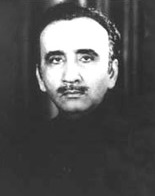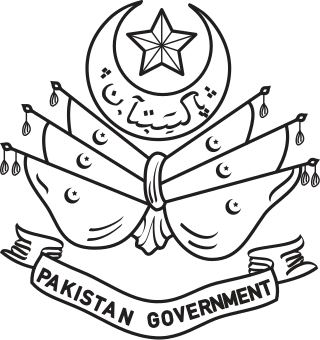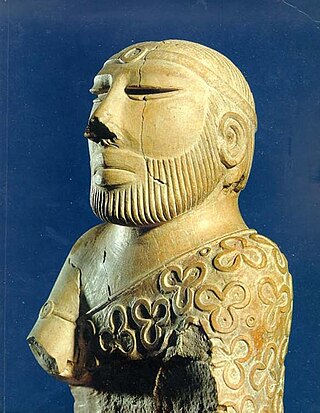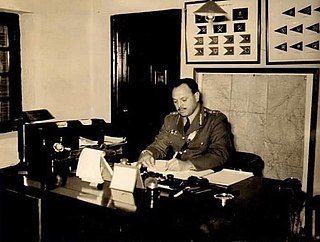This article needs additional citations for verification .(February 2024) |
| |||||
| Decades: | |||||
|---|---|---|---|---|---|
| See also: | |||||
Events from the year 1962 in Pakistan.
This article needs additional citations for verification .(February 2024) |
| |||||
| Decades: | |||||
|---|---|---|---|---|---|
| See also: | |||||
Events from the year 1962 in Pakistan.

East Pakistan was the eastern province of Pakistan between 1955 and 1971, covering the territory of the modern country Bangladesh. The province was restructured and renamed from East Bengal, which, in modern times, is split between India and Bangladesh. Its land borders were with India and Burma, with a coastline on the Bay of Bengal. East Pakistanis were popularly known as "Pakistani Bengalis"; to distinguish this region from India's state West Bengal, East Pakistan was known as "Pakistani Bengal". In 1971, East Pakistan became the newly independent state Bangladesh, which means "country of Bengal" or "country of Bengalis" in Bengali language.

Agha Muhammad Yahya Khan was a Pakistani military officer, who served as the third president of Pakistan from 1969 to 1971. He also served as the Commander-in-Chief of the Pakistan Army from 1966 to 1971. Along with Tikka Khan, he was considered the chief architect of the 1971 Bangladesh genocide.
Mohammad Ayub Khan, better known as Ayub Khan, was a Pakistani military officer who served as the second president of Pakistan from 1958 to 1969. He previously served as the third Commander-in-Chief of the Pakistan Army from 1951 to 1958.

The Constitution of Pakistan, also known as the 1973 Constitution, is the supreme law of Pakistan. The document guides Pakistan's law, political culture, and system. It sets out the state's outline, the fundamental rights of the population, the state's law and orders, and also the structure and establishment of the institutions and the armed forces. Drafted by the government of Zulfikar Ali Bhutto, with additional assistance from the country's opposition parties, it was unanimously approved by the 5th Parliament on 10 April and ratified on 14 August 1973. The first three chapters establish the rules, mandate, and separate powers of the three branches of the government: a bicameral legislature; an executive branch governed by the Prime Minister as chief executive; and an apex federal judiciary headed by Supreme Court. The Constitution designates the President of Pakistan as a ceremonial Head of State who is to represent the unity of the state. The first six articles of the constitution outline the political system as federal parliamentary republic system; as well as Islam as its state religion. The Constitution also encapsulates provisions stipulating the legal system's compliance with Islamic injunctions contained in the Quran and Sunnah.

Sahibzada Iskandar Ali Mirza was a Pakistani politician, statesman and military general who served as the Dominion of Pakistan's fourth governor-general of Pakistan from 1955 to 1956, and then as the Islamic Republic of Pakistan's first president from 1956 to 1958.

Fazal Ilahi Chaudhry was a Pakistani politician who served as the fifth president of Pakistan from 1973 to 1978 prior to the imposition of martial law led by Chief of Army Staff General Zia-ul-Haq. He also served as the deputy speaker of the National Assembly of Pakistan from 1965 to 1969 and the eighth speaker of the National Assembly of Pakistan from 1972 to 1973.

The Parliament of Pakistan is the supreme legislative body of the Islamic Republic of Pakistan. It is a bicameral federal legislature, composed of the President of Pakistan and two houses: the Senate and the National Assembly. The president, as head of the legislature, has the power to summon or prorogue either house of the Parliament. The president can dissolve the National Assembly, only on the Prime Minister's advice.

Mohammad Khan Junejo was a Pakistani politician and statesman who served as the tenth Prime Minister of Pakistan from 1985 to 1988 under president Muhammad Zia-ul-Haq. During his tenure as Prime Minister he sought to strengthen the power of the office and assert civilian control over state affairs, foreign affairs and military appointments, coming into conflict with Zia-ul-Haq and various senior military officers eventually culminating in his dismissal by Zia. His inquiries into the Ojhri Camp Disaster, appointment of Aslam Beg as VCOAS, various Corps Commanders, growing control over senior military promotions, forays into international politics, rejecting Zia appointments in his cabinet, stance against martial law, austerity policies and purported spying on Zia through the civilianized Intelligence Bureau all contributed to the souring in their relation.

The Constituent Assembly of Pakistan was established in August 1947 to frame a constitution for Pakistan. It also served as its first interim parliament. It was dissolved by the Governor-General of Pakistan in 1958.

Fatima Jinnah was a Pakistani politician, stateswoman, author, and activist. She was the younger sister of Muhammad Ali Jinnah, the founder and first Governor-General of Pakistan. She served as the Leader of the Opposition of Pakistan from 1960 until her death in 1967.
Events from the year 1958 in Pakistan.

The East Pakistan Provincial Assembly, known as the East Bengal Legislative Assembly between 1947 and 1955, was the provincial legislature of East Pakistan between 1947 and 1971. It was known as the East Bengal Assembly from 1947 to 1955 when the provincial name was changed. The legislature was a successor to the Bengal Legislative Council and the Bengal Legislative Assembly, which were divided between East Bengal and West Bengal during the partition of Bengal in 1947. It was the largest provincial legislature in Pakistan. Elections were held only twice in 1954 and 1970.

General elections were held in Pakistan on 7 December 1970 to elect members of the National Assembly. They were the first direct general elections since the independence of Pakistan and ultimately the only ones held prior to the independence of Bangladesh. Voting took place in 300 general constituencies, of which 162 were in East Pakistan and 138 in West Pakistan. A further thirteen seats were reserved for women, who were to be elected by members of the National Assembly.

The Convention Muslim League (CML) also called Pakistan Muslim League - Convention was a faction of the Pakistan Muslim League that split-off in 1962, in support of the military regime of the President of Pakistan, General Ayub Khan. The opposition party was known as the Council Muslim League. Convention Muslim League contested presidential election of Pakistan held in 1965. CML's electoral symbol was a rose. A convention of Muslim League held in Karachi in September 1962 which was presided by Nawab Muhammad Amin, who was supporter of the 1962 constitution. Ch Khaliquzamman was selected as the chief organizer. The purpose of the Party was only to give political platform to CMLA Ayub Khan. This party was in power for 7 years but could not get the public's appreciation. This party was a composition of the Elite class of Pakistan. Some sources say that Ch Khaliquzamman said that there is no place of democracy in Islam. This party's constitution was also referred to as non democratic in which except of the President, all other members were selected instead of being elected. This party went into decline after the end of Ayub Khan's Regime. Ayub Khan resigned as a president from the party on 31 December 1969 and transferred the party's powers to Fazal ul Qadir Chaudhary. Chaudhary tried his best to revive the party but failed.

The history of East Bengal and East Pakistan from 1947 to 1971 covers the period of Bangladesh's history between its independence as a part of Pakistan from British colonial rule in 1947 to its independence from Pakistan in 1971.

Military coups in Pakistan began in 1958 when military officer Muhammad Ayub Khan overthrew and exiled president Iskandar Ali Mirza. Since its creation in 1947, Pakistan has spent several decades under military rule. After their respective terms in office, each of the past five prime ministers of Pakistan has faced convictions or imprisonment. This trend highlights a significant aspect of Pakistan's political landscape: the prevailing rule that the Pakistani military exercises influence wherever it deems necessary, often persisting despite potential repercussions. Throughout Pakistani history, the military has played a prominent role in governance, with periods where it has directly ruled the country.
The Constitution of 1962 was the fundamental law of Republic of Pakistan from 8 June 1962 until martial law was declared in 25 March 1969. It was abrogated on 25 March 1969 by President Yahya Khan.

The 1969 East Pakistan uprising was a democratic political uprising in East Pakistan. It was led by the students backed by various political parties such as the Awami League and National Awami Party and specially their student wings against Muhammad Ayub Khan, the president of Pakistan in protest of the military rule, political repressions, Agartala Conspiracy Case and the incarceration of Sheikh Mujibur Rahman and other Bengali nationalists.

The 1958 Pakistani military coup was the first military coup in Pakistan that took place on 27 October 1958. It resulted in the toppling of Iskandar Ali Mirza, the president of Pakistan, by Muhammad Ayub Khan, the commander-in-chief of the Pakistan Army.

Khan Amirzadah Khan was a member of the Khudai Khidmatgar movement and a leader of the National Awami Party in Pakistan. Born in Bakhshali village, Mardan District in the province of Khyber Pakhtunkhwa, he was an active participant of Khudai Khidmatgar movement organized by Bacha Khan. Amirzada Khan started active politics with National Awami Party and remained President of National Awami Party District Mardan until 1972, when he remained senior Provincial Minister of Law, Education and Parliamentary Affairs.